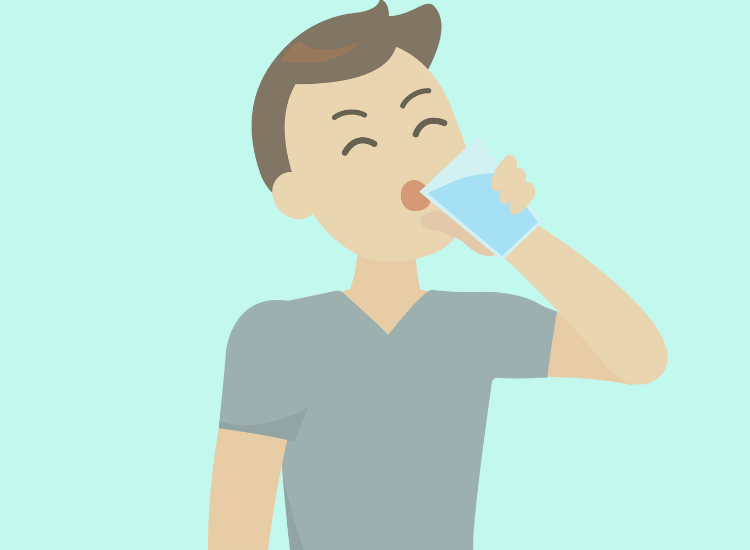Stomach problems such as acid reflux, heartburn, and ulcers are common digestive issues that affect millions of people worldwide. One of the most effective treatments for these conditions is proton pump inhibitors (PPIs). These medications work by reducing stomach acid production, providing relief from symptoms and promoting healing.
In this blog, we will explore what proton pump inhibitors are, how they work, their benefits, potential risks, and when they should be used.
What Are Proton Pump Inhibitors (PPIs)?
Proton pump inhibitors (PPIs) are medications that reduce the production of stomach acid by blocking the proton pump, a mechanism in the stomach lining responsible for acid secretion.
The most commonly used PPI medications include:
- Omeprazole (Prilosec)
- Lansoprazole (Prevacid)
- Esomeprazole (Nexium)
- Pantoprazole (Protonix)
- Rabeprazole (AcipHex)
These medications are available both over-the-counter (OTC) and by prescription, depending on the condition being treated.
How Do Proton Pump Inhibitors Work?
The stomach produces acid to help digest food and kill harmful bacteria. However, when too much acid is produced, it can lead to acid-related disorders, such as:
- Gastroesophageal reflux disease (GERD) – Acid flows back into the esophagus, causing heartburn.
- Peptic ulcers – Sores develop in the stomach or small intestine due to acid damage.
- Zollinger-Ellison syndrome – A rare condition causing excessive acid production.
PPIs work by blocking the enzyme (proton pump) responsible for acid secretion, thereby reducing stomach acid levels. This helps to:
✔ Relieve heartburn and acid reflux symptoms.
✔ Allow ulcers to heal.
✔ Prevent further damage to the digestive tract.
Unlike antacids (such as Tums) that neutralize existing acid, PPIs prevent acid production altogether, offering longer-lasting relief.
Who Needs Proton Pump Inhibitors?
PPIs are commonly prescribed for individuals experiencing:
1. Gastroesophageal Reflux Disease (GERD)
GERD occurs when stomach acid frequently flows back into the esophagus, causing symptoms like:
- Heartburn (burning sensation in the chest)
- Regurgitation (acid backing up into the throat)
- Chronic cough and sore throat
PPIs help reduce acid levels and prevent damage to the esophagus.
2. Peptic Ulcers
Ulcers develop when the protective lining of the stomach or intestines is weakened by acid. Causes include:
- Helicobacter pylori (H. pylori) infection
- Long-term use of NSAIDs (e.g., ibuprofen, aspirin)
PPIs allow ulcers to heal by reducing acid exposure.
3. Zollinger-Ellison Syndrome
This rare condition causes tumors to form in the pancreas or duodenum, leading to excessive acid production. PPIs help manage the condition by controlling acid secretion.
4. Barrett’s Esophagus
This is a complication of long-term GERD where the esophageal lining changes, increasing the risk of esophageal cancer. PPIs reduce acid exposure, preventing further damage.
Benefits of Proton Pump Inhibitors
🌟 Highly Effective – PPIs provide long-lasting relief compared to antacids and H2 blockers.
🌟 Heals Ulcers – Helps in repairing damaged stomach lining.
🌟 Prevents Esophageal Damage – Reduces complications from chronic acid reflux.
🌟 Improves Quality of Life – Reduces discomfort and allows for better digestion.
Potential Risks and Side Effects of PPIs
While PPIs are effective, long-term use may lead to certain risks, including:
⚠ Nutrient Deficiencies – Reduced acid can impair the absorption of vitamin B12, calcium, and magnesium, leading to deficiencies.
⚠ Increased Risk of Fractures – Long-term use may weaken bones and increase the risk of osteoporosis and fractures.
⚠ Higher Risk of Infections – Lower stomach acid may allow harmful bacteria to grow, increasing the risk of gastrointestinal infections (e.g., C. difficile).
⚠ Kidney Disease – Some studies suggest a link between long-term PPI use and chronic kidney disease.
⚠ Rebound Acid Hypersecretion – Suddenly stopping PPIs can cause the stomach to produce even more acid, leading to worse symptoms.
How to Use Proton Pump Inhibitors Safely
To maximize benefits and minimize risks, follow these guidelines:
✔ Take PPIs on an empty stomach (usually 30–60 minutes before breakfast).
✔ Use for the shortest duration necessary – Avoid long-term use without medical supervision.
✔ Consider lifestyle changes – Avoid trigger foods, eat smaller meals, and maintain a healthy weight to reduce acid reflux.
✔ Consult a doctor before stopping PPIs to prevent rebound symptoms.
Alternatives to PPIs
If PPIs aren’t suitable for you, other options include:
🔹 Antacids (Tums, Rolaids) – Provide quick relief but don’t prevent acid production.
🔹 H2 Blockers (Ranitidine, Famotidine) – Reduce acid but are less powerful than PPIs.
🔹 Lifestyle Changes:
- Eat smaller, frequent meals.
- Avoid spicy, acidic, and fatty foods.
- Don’t eat right before bedtime.
- Raise the head of your bed to reduce reflux at night.
Final Thoughts
Proton pump inhibitors are a powerful treatment for acid-related stomach problems, including GERD, ulcers, and chronic acid overproduction. While they offer significant relief and healing benefits, they should be used responsibly to avoid long-term side effects.

